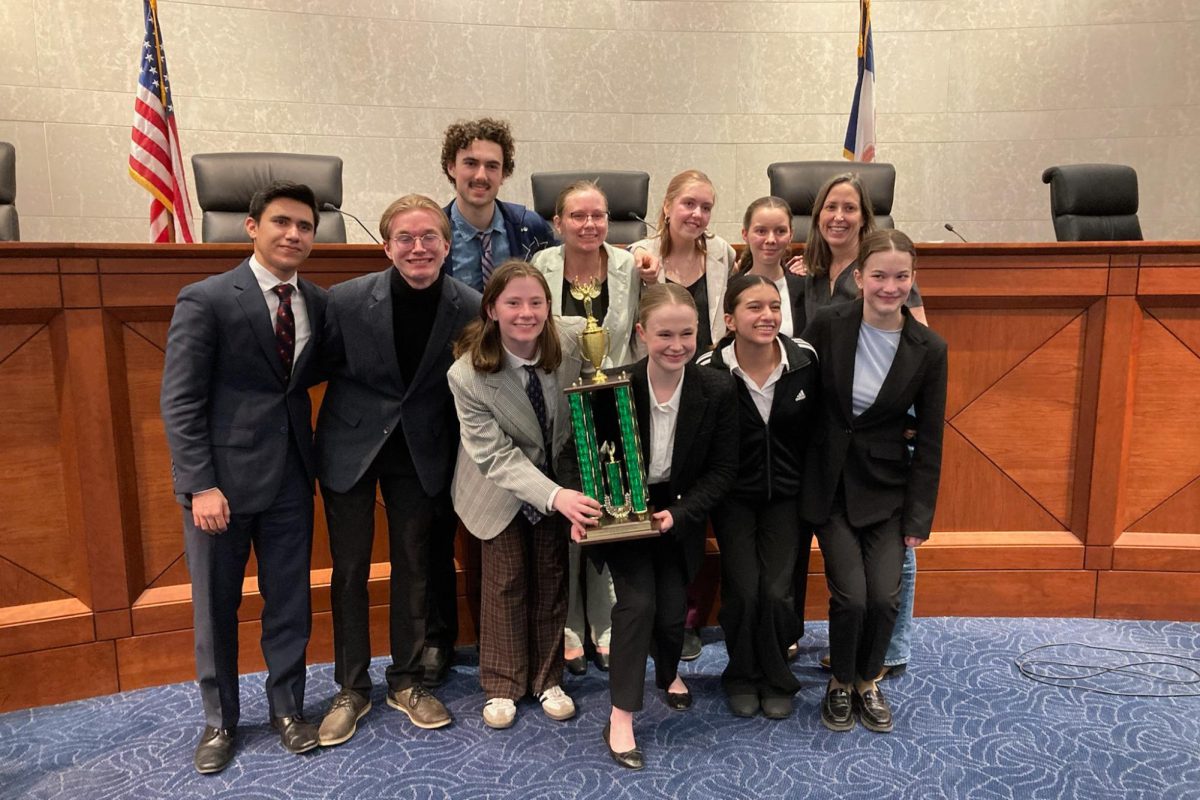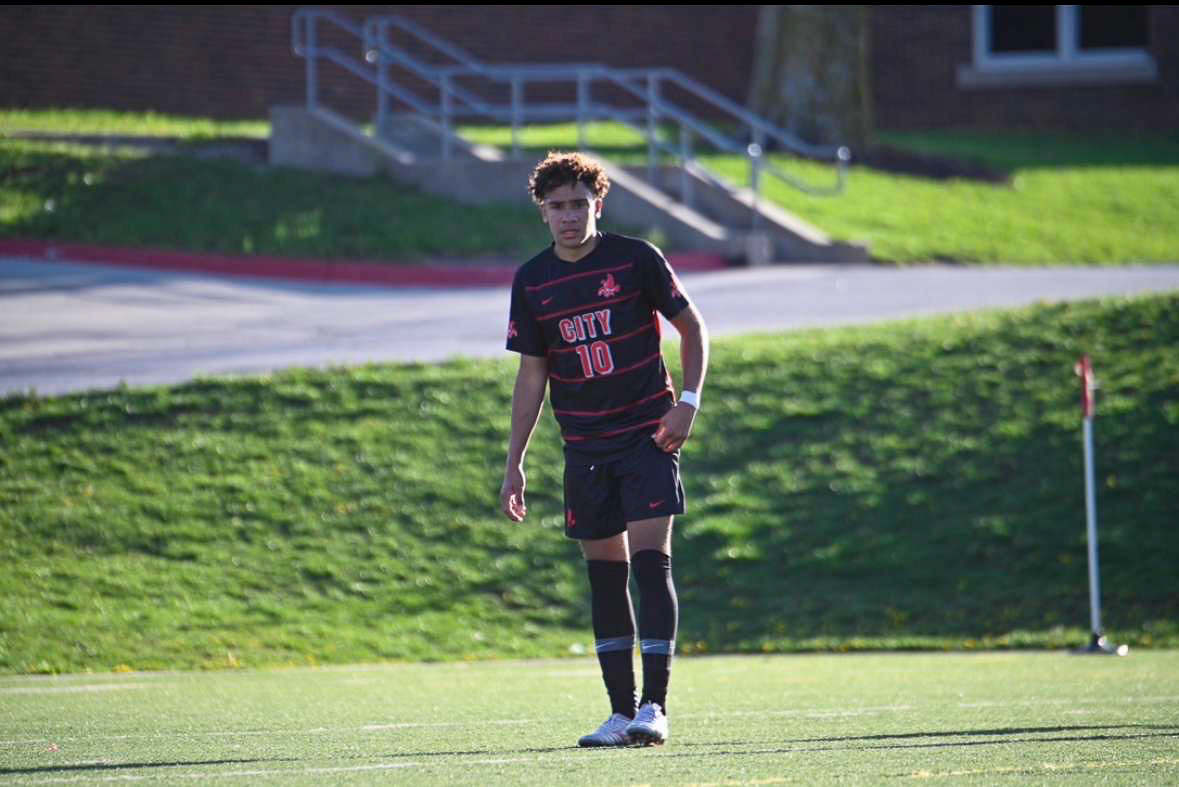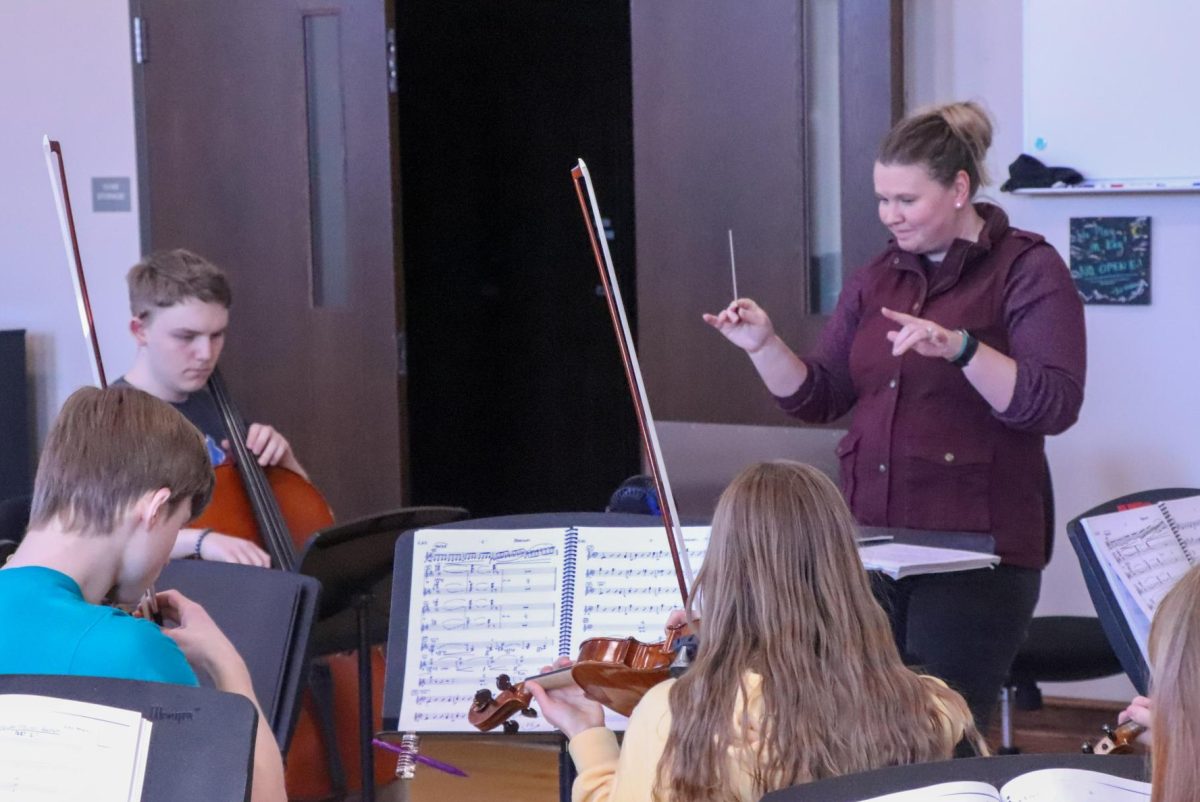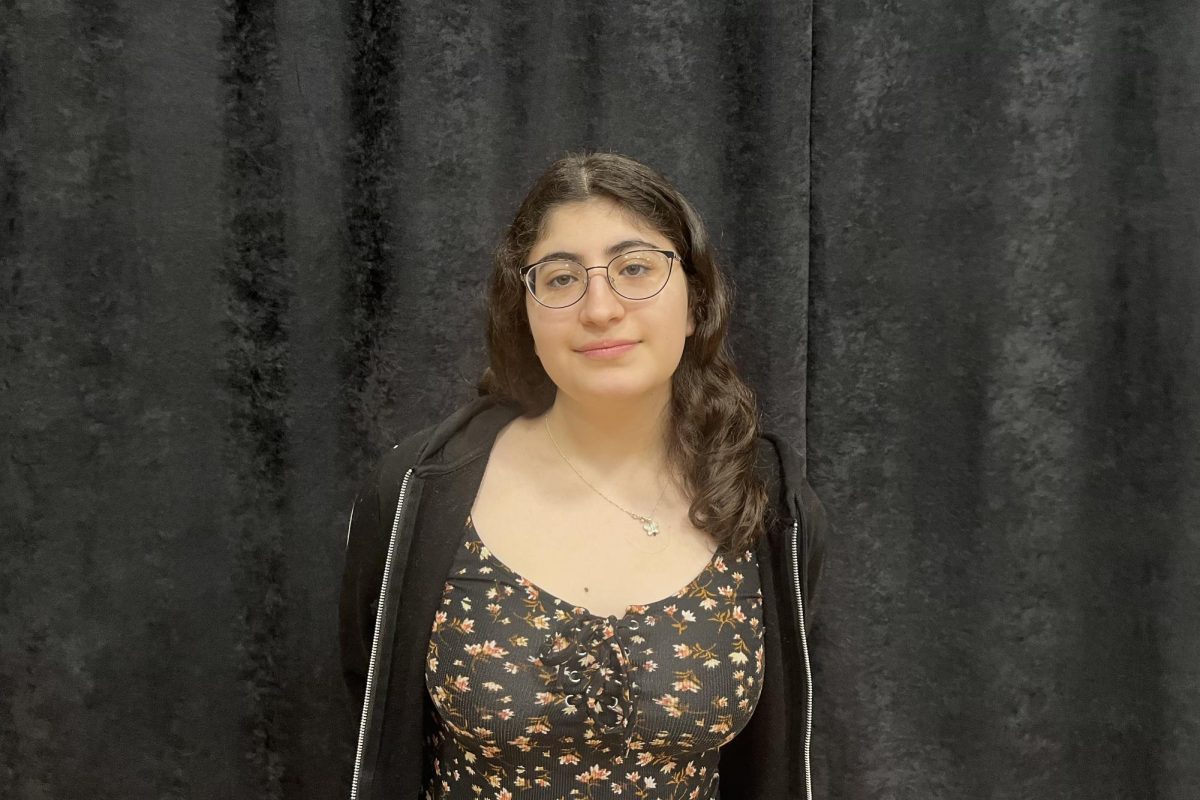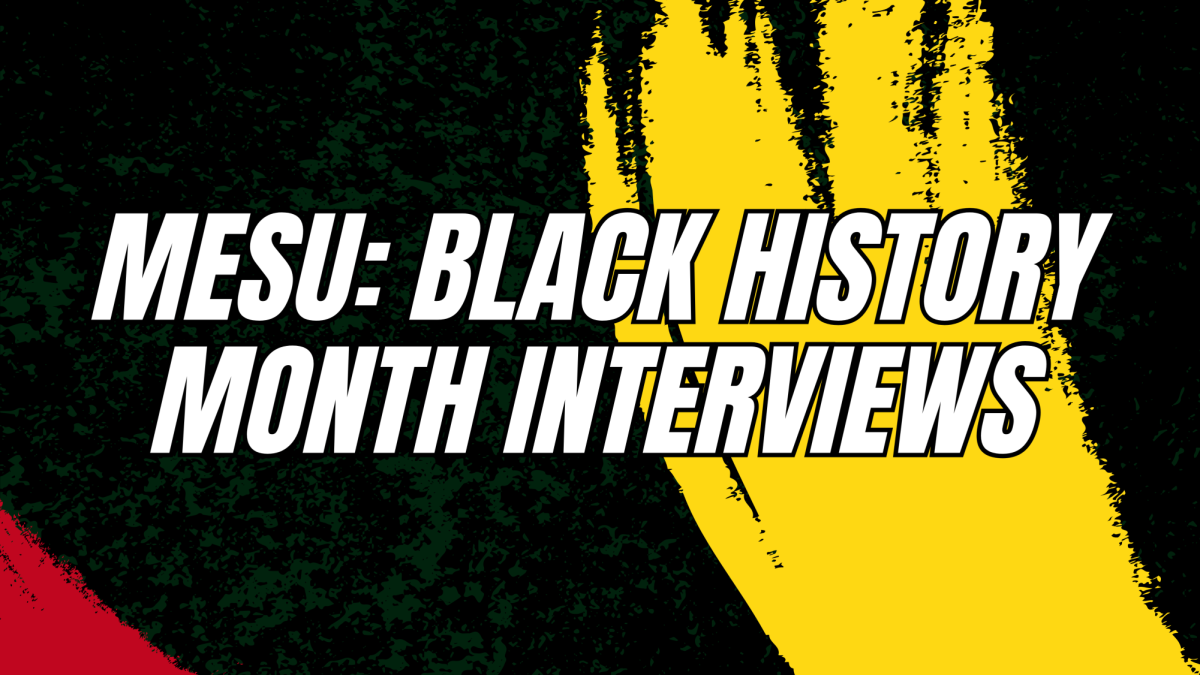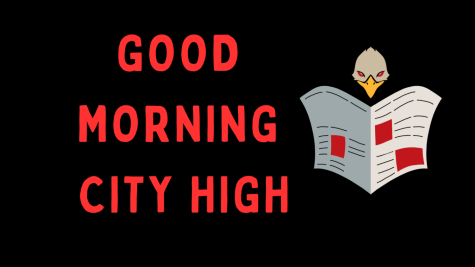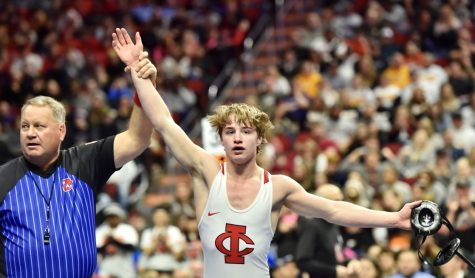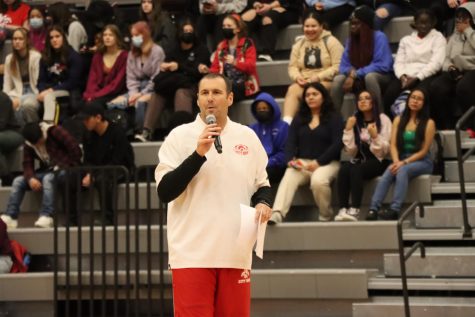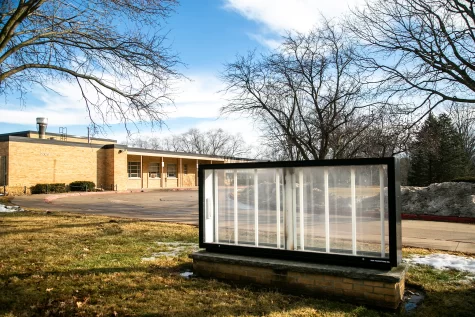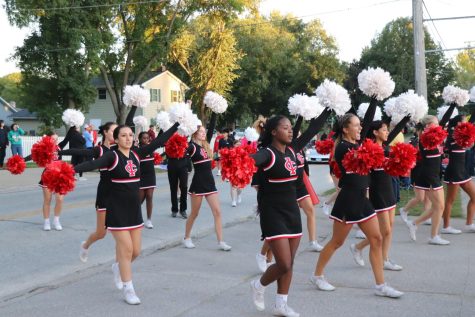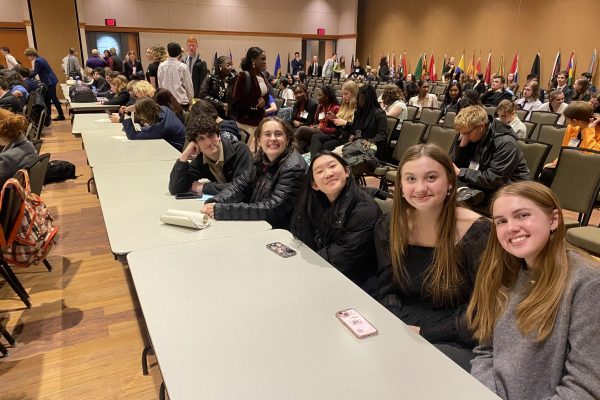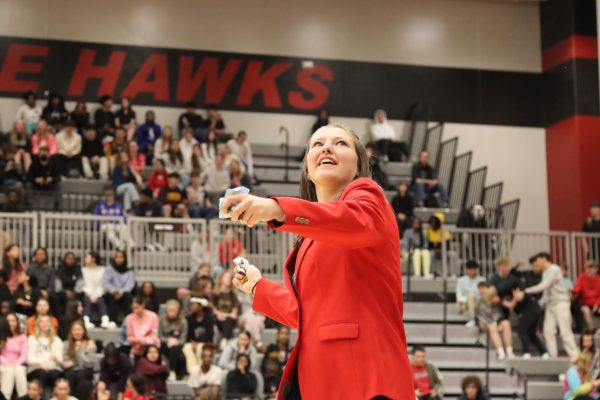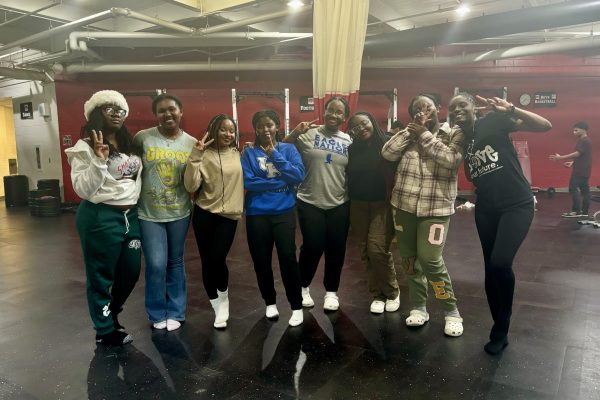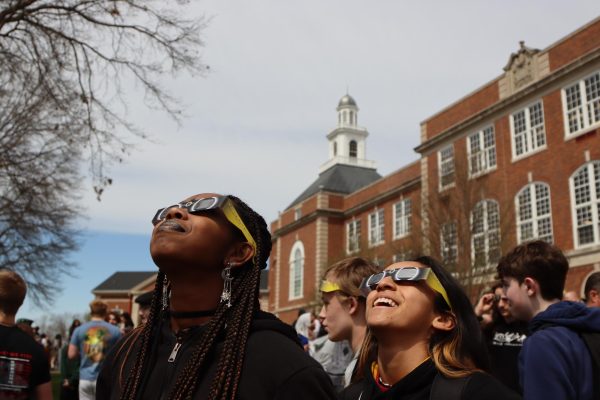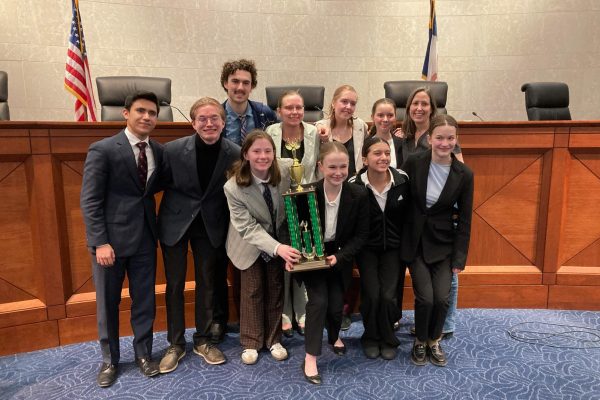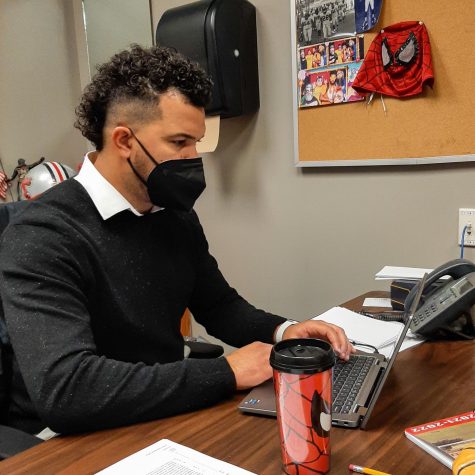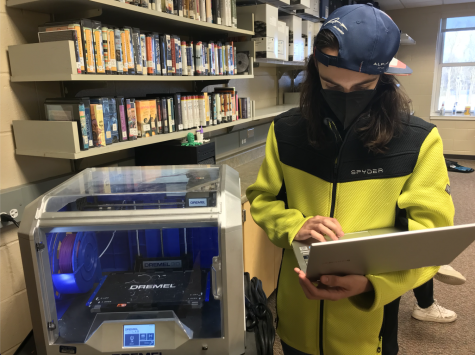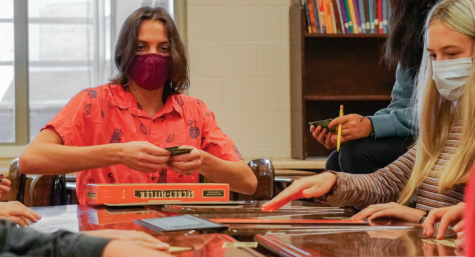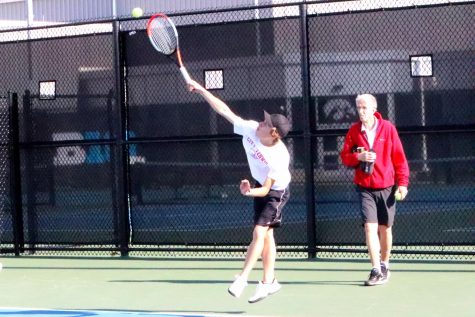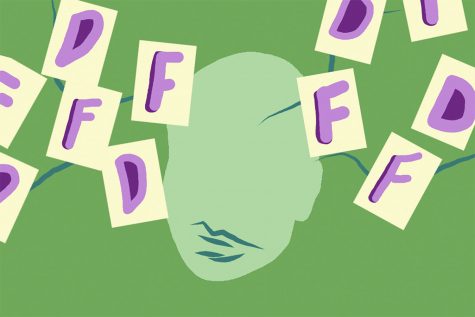AP Capstone Set to Begin Next Year
Art by Estie Dillard.
Most students will not have the chance to learn how to write and defend a thesis until their college years, but a new program aims to teach high school students just that.
The AP Capstone program, which focuses on teaching skills rather than content, will be introduced to City High in the coming school year. Naomi Meurice ‘19 plans to take part in the program because of its distinctive style of learning.
“[AP Capstone] is something different than the normal curriculum. [Student’s are] not just learning content; [they’re learning] life skills. Plus, it’s a unique opportunity that not a lot of other high school students have and I wanted to capitalize on that.”
AP Capstone will be composed of two courses, AP Seminar and AP Research. These will be taken consecutively, one junior year and one senior year. Mrs. Borger-Germann, the future teacher of AP Capstone, believes that the course will allow greater creative opportunity for students.
“[AP Capstone] is an opportunity. I think that is the easiest, shortest answer. In terms of the skills we are really focusing on the skills of inquiry–how we ask good questions and find good answers,” Borger-Germann said. “That’s what inquiry is really about. Not just good answers, but multi faceted, complex answers, that account for multiple points of view from multiple disciplines.”
AP Seminar teaches students to view real world issues from different perspectives. Students choose a relevant topic from current events in the world. They will work in groups to approach their question from many different angles. One student might focus on how the economy relates to their question while another may study history or culture. Students will learn how to synthesize information, develop their reasonings through research-based written essays, and design and deliver oral and visual presentations.
AP Research, however, allows students to study an academic topic or issue of individual interests. Students will plan and design a research based investigation to allow them to solve or address the question they asked at the beginning of the year. Through their study students will write a 25 page paper to defend against a group of people who are experts in that field of study. The focus of the course will be on understanding research methodology, learning how to use ethical research practices, and access, analyze and synthesize information.
Despite its AP label, the Capstone program utilizes a different grading system in comparison to regular AP classes. In AP Seminar, students’ grades are made up of research projects they complete throughout the year. Students upload papers and presentations so that they can be graded by the college board. Similarly to other AP courses, there is a final exam at the end of the year for AP Seminar graded on the 1-5 scale. AP Research, however, does not have a final exam; instead, the grading of the course will be based upon the research project and defense.
Students at City High have many motives for considering taking part in the two year program; however, for Joseph Cermak ‘19, the independence the course allows is what appeals to him the most.
“[AP Capstone] is very different from other courses you don’t have a teacher telling you what to do and assigning things you’re finding things out for yourself. It’s more group and independent work,” Cermak said. “I’ve heard from a couple of my friends that they are going to do it because they want colleges to look at that and see that they [have the] AP Capstone Diploma.”
However, some students see some drawbacks to the program.
“The two year thing is interesting it can be good and that can be bad. [AP Capstone] also takes up another class period. It takes away from the chance to try new electives,” Meurice said.
The freedom of the course allows students to take control of their learning, but this can be daunting for some. In comparison to other courses, the purpose of the AP Capstone teacher is to give guidance and support while the students take more of the initiative in coming up with what with they will be studying.
“[Students] really need a willingness and an interest in self guided inquiry and be interested in seeing the connections they can make between all of their classes,” Ayers said. “That’s the sort of student I think would most benefit from this program, [someone] who would really dig into it.”
Your donation will support the student journalists of Iowa City High School. For 2023, we are trying to update our video and photo studio, purchase new cameras and attend journalism conferences.
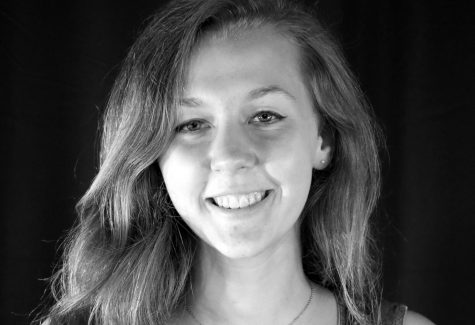
Zoë Miller is in her senior year at City High. She enjoys how The Little Hawk helps her meet people and get the chance to hear their stories.





